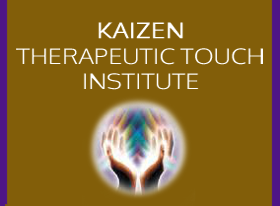 KAIZEN has two meanings. In Sanskrit, kaizen means, renew the heart and make it good. Kaizen is also a Japanese philosophy and system of continuous improvement…Kai meaning “change”, “renew”, “reform” and Zen meaning “good”, “virtue”. A literary translation of kai-zen is “betterment” that focuses on doing more with less which we, in the West, have come to know as LEAN and Six Sigma. The meanings of kaizen and the kaizen philosophy when integrated form the DNA of the Kaizen Leadership Institute’s programs and services.
KAIZEN has two meanings. In Sanskrit, kaizen means, renew the heart and make it good. Kaizen is also a Japanese philosophy and system of continuous improvement…Kai meaning “change”, “renew”, “reform” and Zen meaning “good”, “virtue”. A literary translation of kai-zen is “betterment” that focuses on doing more with less which we, in the West, have come to know as LEAN and Six Sigma. The meanings of kaizen and the kaizen philosophy when integrated form the DNA of the Kaizen Leadership Institute’s programs and services.
Edwards Deming, whose focus on the disciplines of quality control and quality management, is widely recognized as one of the inspirations for the Japanese post-war economic boom. Deming recognized the value of the results oriented and process focused approach and the critical importance of data, inherent in the kaizen methodology for total quality management.
Premises
The kaizen approach recognizes that small, gentle, pro active steps taken to improve processes minimize the need for large-scale change that’s often disruptive or worse, can lead to a state of paralysis. Data collection and process mapping are management Best Practices. The practice engages all involved and recognizes problems and challenges as opportunities to eliminate waste of all kinds.
Kai Zen philosophy basics
- Culture is participatory – we’re all in it together
- Results oriented and process focus – adjustments to the process delivers desired results
- Small, pro active steps taken in a timely manner, minimize waste
- Mistakes are learning opportunities enhancing creativity and innovation
- Change is an opportunity for improvement
- Attitudes of judgment and blame are counter-productive
- Success is measured through engagement and improved productivity which results in satisfaction.
Application to Kaizen Leadership Institute practises
The Kaizen Leadership Institute’s coaching approach is built on kaizen philosophy and practices. Defining goals helps clients focus on process and monitor progress. Kaizen tools and Best Practices help clients become more effective and get things done more and more efficiently.
Related Articles:





